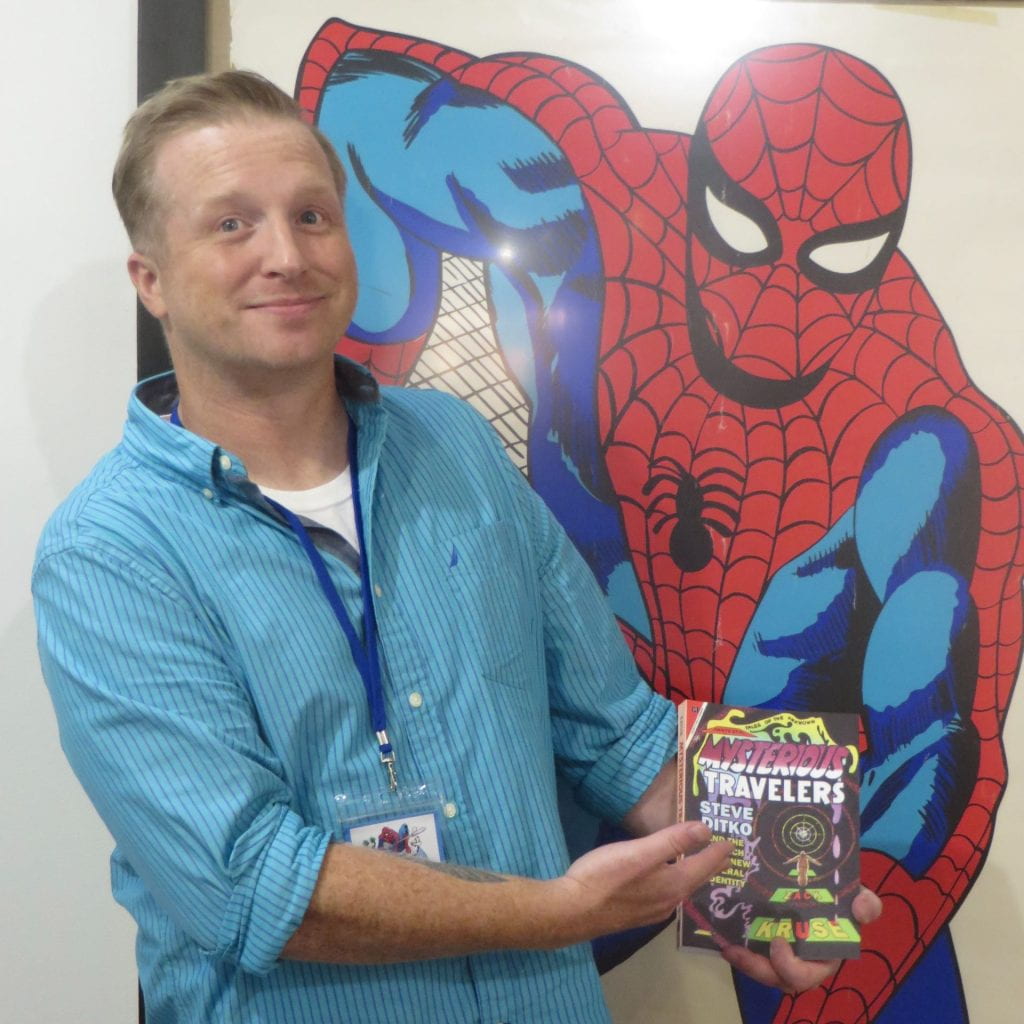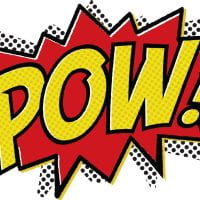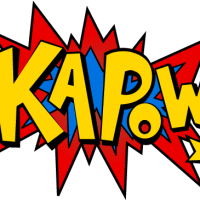
Zack Kruse, Lecturer for Applied Writing and English
Background

Professor Kruse earned his undergraduate degree in 2004 and then worked in the comics industry for a decade. He went on to earn his PhD from Michigan State in English, focusing in visual media and American Cultural Studies. His dissertation was published by University Press in Mississippi. That book, Mysterious Travelers: Steve Ditko and the Search for a New Liberal Identity was nominated for an Eisner award. Professor Kruse is also writing for a comic series called Static, one of Steve Ditko’s creations, and he wrote a comic strip called Mystery Solved! which appeared in Skeptical Inquirer Magazine. He is in the process of creating a documentary based on the books of Steve Ditko.
Strategy
Comic books are an enduring form of storytelling that several instructors on our campus are using. Professor Kruse’s classroom strategy is using comic books both as literature in English classes and to teach visual literacy in writing foundations courses. Zack also teaches a first-year seminar focused on comic books and American culture. The comics are used to convey ideas about society using characters and ideas that students are more familiar with. It meets the students “where they are” and gives a diverse student population the opportunity to see others like themselves within the pages of these books and also as creators.
Why Is It Important?

Professor Kruse makes it clear that he is passionate both about comics and the students within his classroom. He is aware of the broad cultural impact of comic books and that these texts invite a sense of discovery by looking at characters that are likely familiar in a new way. He believes that comics help students who are trying to find their place in the world see others like themselves doing the same thing. It also can help students who are hesitant to read to ultimately engage with ideas in a more accessible way and become part of the cultural conversation. The history of comics is a history of many of the divisive issues in our current time. Comics have existed as long as many of these issues and they have something to say to our students. His hope is that young people will engage with these texts and then act where they feel passionate.
Want to Try It?
 Professor Kruse has used the following comic books in his classroom. Some of those comic studies have included author visits. Professor Kruse uses a multitude of others not listed here and would be happy to offer recommendations if you’d like to integrate some of these works into your own classroom.
Professor Kruse has used the following comic books in his classroom. Some of those comic studies have included author visits. Professor Kruse uses a multitude of others not listed here and would be happy to offer recommendations if you’d like to integrate some of these works into your own classroom.
- Steve Ditko’s Dr. Strange
- Jaime Hernandez’s Love and Rockets
- Jim Terry’s Come Home, Indio
- Ben Passmore’s Your Black Friend
- Jon Porcellino’s King Cat
Want to Know More? Explore Additional Resources!
- Harvard Business School – Comics in the Classroom
- American English – Teaching with Comics and Graphic Novels
- Cult of Pedagogy – Graphic Novels in the Classroom: A Teacher Roundtable
- Northwest Vista College Library – Graphic Novels, Comics and Manga: Using Graphic Novels in the Classroom
*Speech Bubbles covered by a Creative Commons license and provided courtesy of Rojal on PNG All
Share with Your Colleagues
Do you have a strategy you’d like to share with your colleagues? Send a quick email to catl@uwgb.edu and we will follow up with you to create your teaching strategy spotlight! We would love to hear from you!